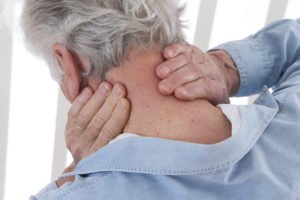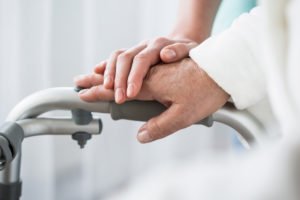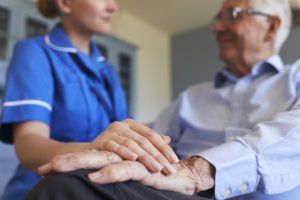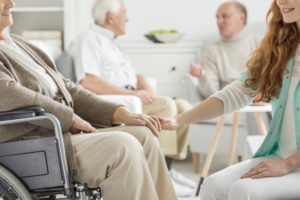
When caring for elderly residents in a nursing home facility, guarding against potential falls is a constant concern of staff and facility owners. Falls can lead to a number of issues, including broken bones, head trauma, and spinal injuries in nursing homes.
Every year, according to the Centers for Disease Control and Prevention (CDC), more than 800,000 Americans age 65 and older suffer a fall injury that requires a hospital stay. If a nursing home resident falls and hits his or her head on furniture or another hard object, it can create head trauma as well as spinal trauma.
How Do Seniors Suffer Spinal Trauma in a Nursing Home?
It can be difficult to understand how a nursing home resident can end up with a spinal injury. Spinal trauma is associated more with falls from a great height, such as could happen with a construction worker, or as a result of a car accident.
However, there are some cases where the resident could end up with a significant spinal cord injury from a fall at the facility, including:
- Trip, slip, and fall: where the resident falls while walking, while exiting the shower, or while leaning over to pick something up off the ground, potentially resulting in neck and back injuries.
- Accident: where residents fall to the ground while a staff member is helping them move, possibly because the staff member slips or trips and cannot support the weight of the resident, or where the resident falls out of a wheelchair or out of bed.
- Abuse: where a staff member or another resident attacks your loved one, pushing him or her to the ground and causing a neck or back injury.
- Failing to respond: where staff members do not respond to a call for help in a timely manner from one of the facility’s residents, causing them to attempt to stand up on their own, resulting in a fall.
Nursing home facilities should always be taking steps to attempt to prevent falls for residents, according to STEADI, an initiative created by the CDC, which will naturally reduce the risk of a spinal injury occurring. Doing things like monitoring the medications of each resident for side effects, removing tripping hazards, and improving lighting throughout the facility can help reduce falls.
Risk Factors for Spinal Injuries
Some people just have a greater risk of suffering a spinal injury than others because of conditions they may have or because of illnesses. Some of these risk factors include:
- A history of broken bones
- Having undergone hip replacement surgery
- General weakness in the body
- Osteoporosis
- Scoliosis
- Limited mobility
- Taller than average
There are reasons other than those we have listed here that someone could be at a greater risk of spinal trauma after a fall in a nursing home.
For a free legal consultation, call 800-712-9119
Health Problems From Spinal Injuries
In the most serious cases of falls that result in spinal cord injuries, the nursing home resident could suffer a fatality. According to the CDC, adults aged 65 and older in the United States have an age-adjusted fall death rate of 64 deaths per 100,000.
Many seniors are able to survive a fall and a spinal cord injury, but they may have health problems that linger well into the future, including:
- Respiratory issues that could require the use of oxygen or a ventilator
- Partial or full paralysis, depending on the location of the damage in the spinal cord
- Broken vertebrae in the spine, which can greatly reduce freedom of movement and create substantial pain
- Nerve problems, including a reduction or loss of sensation in the hands or feet
- Loss of coordination or balance, leaving the resident using a walker going forward
- Loss of control of bodily functions
- Inability to perform basic personal grooming tasks required each day
- Becoming bedridden or confined to a wheelchair, which can limit the resident’s quality of life
- Requiring feeding through a nasal tube
Sometimes, a spinal cord injury can cause just as much mental and emotional trauma for the nursing home resident as the physical trauma causes. A resident who no longer can enjoy the same activities he or she did before the accident could become depressed, causing additional problems.
Protecting Nursing Home Residents From Injuries
Nursing home staff members and those who operate the facilities need to do everything possible to protect their residents from falls, some of which can lead to spinal injuries in nursing homes. Spinal problems can cause significant long term health problems for older people, often leaving them unable to care for themselves as they did before the accident.
If your loved one suffered an injury to the back or spine at a nursing home, you may want to consider bringing a personal injury lawsuit against the facility, seeking compensation for medical bills related to the injury, as well as for pain, suffering, and reduction in quality of life on behalf of your loved one.
Call the team at Ben Crump Law, PLLC for a free consultation at 800-959-1444 today. We will be ready to begin working on your behalf on a contingency-fee basis, meaning you pay no upfront or out-of-pocket fees. We are only paid if we secure a fair settlement for you and your loved one.
Call or text 800-712-9119 or complete a Free Case Evaluation form








